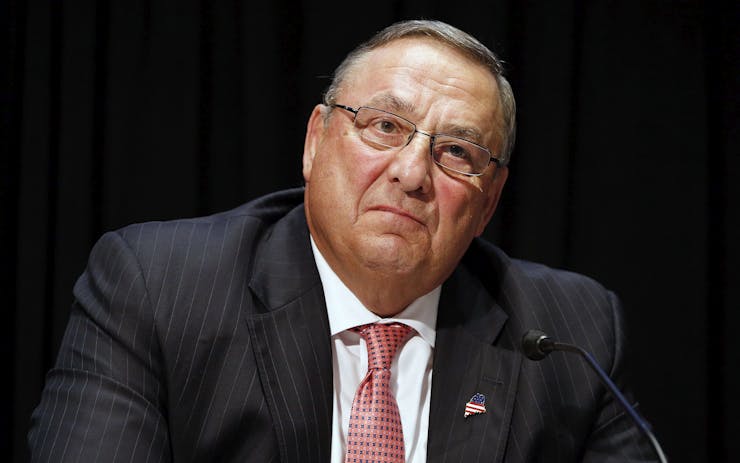Maine Gov. Paul LePage on Tuesday said he’s now signed everything that has crossed his desk related to the election—including Question 1, a ballot initiative LePage sharply opposed during the campaign on the grounds it would legalize “deadly” cannabis.
That means beginning Jan. 30, Mainers will be able to possess up to 2.5 ounces of cannabis as well as grow a limited number of plants at home. Under Maine law, initiatives take effect 30 days after the governor proclaims the result of the election, and Saturday was the deadline for that proclamation. Paperwork was delivered to the Secretary of State on Tuesday morning, the yes campaign said.
“Why do we need medical marijuana if you can buy marijuana over the counter?”
LePage, who urged citizens to vote down Question 1, says he’s still skeptical of whether it was wise for the state to legalize cannabis for adult use. The governor is calling on the Legislature to put a moratorium on the sale of cannabis until a regulatory framework is funded and in place.
Given LePage’s past statements on cannabis, some see the recommendation as signaling an effort to stall implementation of the new law. Advocates said they hope delays will be kept to a minimum.
“We look forward to working with the legislature to ensure a timely implementation of Question 1, which will provide adults with a legal way to purchase marijuana from licensed and regulated businesses,” David Boyer, the Yes on 1 campaign manager, said in a statement Tuesday.
While proponents predict the regulations will take about nine months to establish, some provisions of the law will take effect immediately. Consumption of cannabis, as well as possession of up to 2.5 ounces will become legal, as will the home cultivation of up to six flowering cannabis plants, 12 immature plants, and unlimited seedlings. Public consumption will remain illegal.
LePage initially pushed back against the referendum in the weeks following the election, as the measure’s opponents were petitioning for and then conducting a recount. The governor also claimed the state’s voters didn’t understand the measure, and he indicated he would ask President-elect Donald Trump whether the new administration would enforce federal laws prohibiting cannabis.
“I don’t think that they realize what they’ve done,” LePage repeated on Tuesday during a radio appearance. “You know, for instance, why do we need medical marijuana if you can buy marijuana over the counter?”
Late last month the Republican governor went further, saying ballot referendums are just “recommendations” that “the Legislature doesn’t even have to enact,” according to an Associated Press report.
“Experts on the Maine Constitution say LePage’s interpretation is incorrect,” the report said, adding that “LePage has a history of interpreting the state’s constitution in ways that are later discredited.”
The Associated Press contributed to this report.





